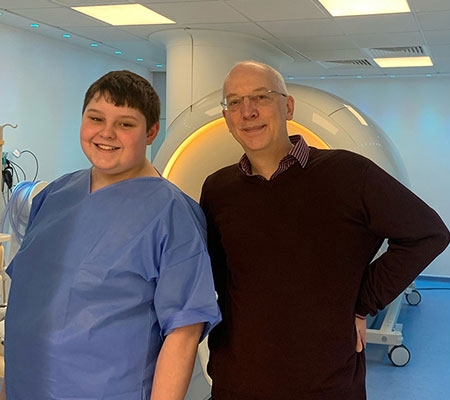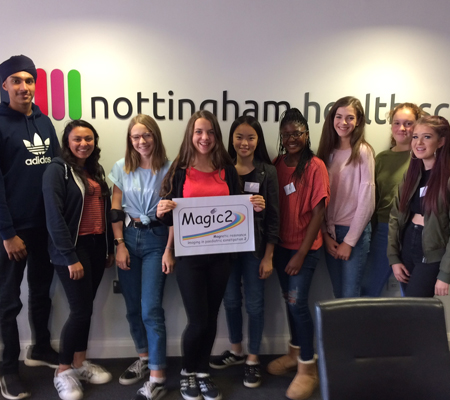Involving children and young people in the MAGIC2 trial
Tuesday 26 May 2020
Digestive diseases account for 13% of all deaths in the UK, with one particular area of concern being paediatric constipation; approximately 10% of children suffer with constipation at some point in their lives. Current treatment is based mostly on reported symptoms with the use of harmful X-ray methods to measure gut transit time, which isn’t very accurate. Dr Luca Marciani, Associate Professor in Gastrointestinal Magnetic Resonance Imaging (GI MRI) at Nottingham University Hospitals NHS Foundation Trust (NUH) and his team were awarded an NIHR i4i grant to address this problem. Their current trial, MAGIC2 (MAGnetic resonance Imaging of gastrointestinal transit in paediatric Constipation 2), builds on their previous MAGIC trial to develop easy to swallow mini capsules that can be detected and analysed using an MRI scan, which are non-invasive and not harmful to the body. MAGIC2 is a multi-centre randomised control trial.
NIHR CYP MedTech are supporting the MAGIC2 trial by identifying clinical experts and sites for the study as well as disseminating project results and working on NHS adoption of the device when the trail is closer to completion.
The study team has worked closely with NUH’s Young Persons Advisory Group (YPAG), scientists, and members of industry to ensure that the mini capsules are fit for purpose, meets the needs of children and young people, and will provide clinicians with a great deal more opportunity to analyse colon activity when compared with current clinical practice.
One YPAG member’s reflections on MAGIC/MAGIC2: “I think YPAG has made a huge contribution to the study and helping Dr Luca. I can clearly see a big development from the first study, and I like how the tablets are now presented. It’s great to be part of the Team. It allows us to meet new people and express our ideas in different ways which others may have not have seen.”
Dr Luca and the team’s success in involving young people in the MAGIC2 trial in a meaningful way isn’t historically typical of medical technology development or research. Demonstrating a strong patient and public involvement (PPI) component within research study design is increasingly becoming a requirement from funders to ensure that research studies and medical devices meet the needs of all stakeholders, including patients.
Guidance on how to involve children and young people in research is increasing but quantifying successful PPI involvement can be difficult for researchers. Dr Luca and the MAGIC2 team are therefore using their success to author a paper detailing how to foster mutually beneficial partnerships with young people through meaningful PPI initiatives, to provide other researchers with the tools, knowledge, and methodologies required to successfully involve children and young people in research studies. The team are currently drafting the paper for journal submission in 2020/2021.





